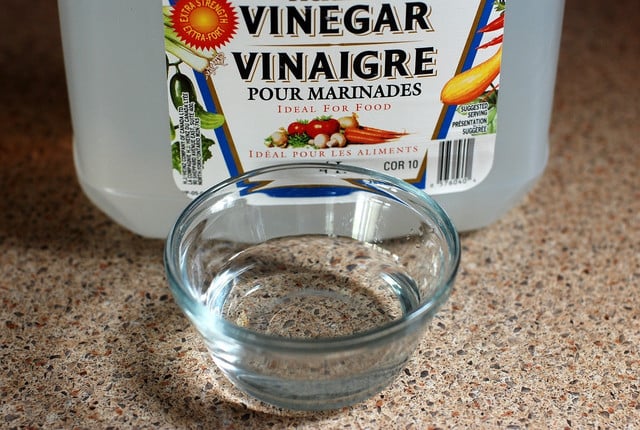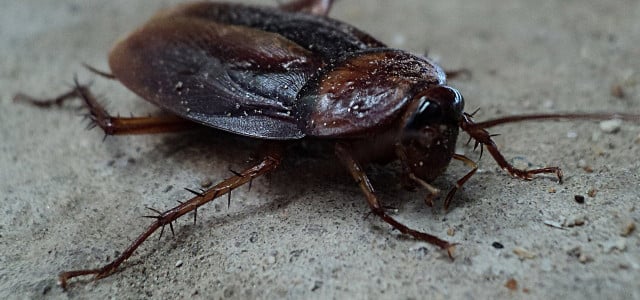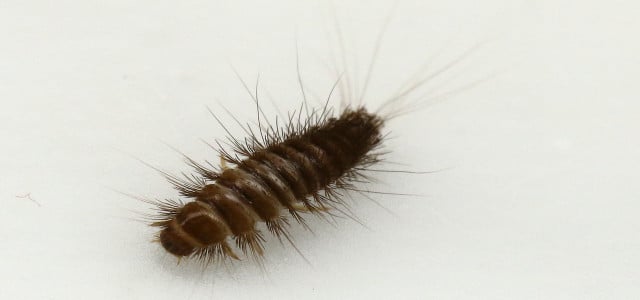They contaminate your food and feast on your cookies — learn how to get rid of biscuit beetles without resorting to nasty insecticides that harm the environment.
Open and forgotten packages of biscuits, crackers and cookies at the back of your cupboard put you at risk of getting biscuit beetles. These gross pests spread their feces and eggs on your food and contaminate areas where you prepare meals. Because of where they show up, they’re also often called drugstore beetles or bread beetles. Their scientific name is Stegobium paniceum.
Thankfully, there are eco-friendly preventive methods you can use that don’t use toxic chemicals or require professional fumigators to visit your house. Follow this guide on sustainable practices for preventing and getting rid of biscuit beetles.
What Are Biscuit Beetles?

Biscuit beetles are small, hard-shelled beetles covered in short yellow hairs. They are pests and get their name from their love for feeding on dried foods. They’ll feast on anything from pasta, grains and flour to — of course — biscuits.
These bothersome bugs thrive in warm, dark spaces that are largely undisturbed. They love, for example, the backs of cupboards, where opened packages of cookies and crackers tend to live.
Once the beetles have infected food, there is no saving it. They move fast. So once they start feeding, they quickly spread and contaminate surrounding food with their eggs and feces. Although they are not necessarily harmful to humans, eating contaminated food is not a good idea.
Once you find biscuit beetles in your cupboard or on shelves, dispose of everything in the vicinity as quickly as possible.
How to Get Rid of Biscuit Beetles — Sustainably



Traditional methods for getting rid of these annoying bugs involve professionally fumigating the affected area and treating the infestation with insecticides.
Such approaches, however, have adverse effects on our health and the environment. Exposure to insecticides may cause symptoms such as dizziness, nausea and irritation to the eyes, nose and throat. Not to mention the environmental damages that insecticides cause, such as toxins in water, soil, air and food.
There are more sustainable, eco-friendly ways of getting rid of biscuit beetles that won’t harm your health or the planet.
The best way to eliminate them is to clean the area thoroughly. Thankfully, this does not need to be done using chemicals or toxic-laden cleaners. Instead, you can use natural cleaning products like vinegar and essential oils. To make a pest-control spray, you’ll need:
- ½ cup vinegar
- 2 cups water
- 10-15 drops essential oils (eucalyptus or peppermint work best here)
Combine all the ingredients in a spray bottle and shake well.
The first step to getting rid of biscuit beetles is to throw out all the infected food. Gather all the food, seal it tightly in a bag, and bin it. It might feel like a waste of food, but it is the most effective way of ensuring biscuit beetles are not hiding and spreading.
Then clean the entire infected area with your natural cleaner. This natural cleaner rids the area of food smells, too. Most pests also hate the smell of vinegar, giving them little reason to stick around.
How to Prevent Drugstore Beetles
Preventing biscuit beetles from returning to your shelves can also be accomplished sustainably and without chemicals and insecticides. The most effective way to stop them is by thoroughly cleaning the infected area. Vacuum the area well, taking extra care to focus on crevices, cracks and corners. Afterward, quickly remove the contents of the vacuum bag, seal the bag tight and throw it away. Get rid of any bits of food contaminated by them.
For an extra, eco-friendly approach to deterring biscuit beetles, assemble some small spice sachets. Place bay leaves, cinnamon sticks or cloves inside small, breathable bags and store them in and around the infected area. These bugs don’t enjoy the smell of spices and should stay away.
More broadly, an excellent preventative approach is to abstain from over-buying dried foods and buying in bulk when you may not be able to consume items before they go bad. When possible, try to only stock your cupboards with what you need and will eat. That prevents unnecessary food waste and reduces the risk of biscuit beetles discovering a new food source.
Did you know that you can freeze flour? This avoids biscuit beetles getting in, while your flour stays fresh (and won’t harden or clump up).
Read more:
- 10 Plants That Repel Flies Naturally
- The 3 Best Bug Identifier Apps
- Bug Hotels: How to Build Your Own Insect House
Important Information regarding Health-related Topics.
** Links to retailers marked with ** or underlined orange are partially partner links: If you buy here, you actively support Utopia.org, because we will receive a small part of the sales proceeds. More info.Do you like this post?








